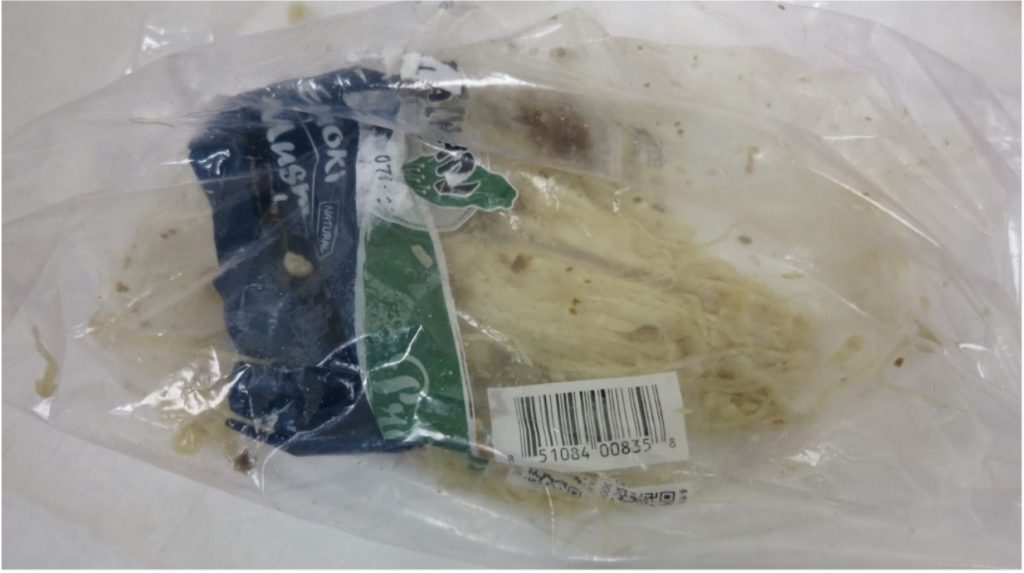Voluntary recall for enoki mushrooms sold in Hawaiʻi, produced by Taiwan cooperative

The Hawai‘i State Department of Health is alerting residents to a voluntary recall of enoki mushrooms sold in Hawai‘i because they have the potential to be contaminated with Listeria monocytogenes.
The mushrooms being recalled are produced by Taiwan-based Changhua County Mushrooms Productions Cooperative and distributed by Jan Fruits.
The recall is the result of a routine sampling program by the Department of Health’s Laboratory Preparedness and Response Branch which revealed that the enoki mushrooms contained Listeria monocytogenes. No illnesses have been reported to date in connection with the enoki mushrooms.
The enoki mushrooms are sold in a 7.05oz (200g) clear plastic package with green-lettered “Premium” printed with two QR scan codes and UPC 8 51084 00835 8 on the back side of a package. The package has no lot code or dates.
If you have purchased this product, throw it away or return it to the place of purchase. If you have consumed this product, watch for symptoms such as stomach cramps, diarrhea, vomiting, nausea or fever. If symptoms occur, contact your healthcare provider.

In addition, the Department of Health and the Centers for Disease Control and Prevention recommend the following for all other enoki mushrooms:
- Thoroughly cook enoki mushrooms before serving or consuming them; do not serve or consume them raw.
- Do not use raw enoki mushrooms as garnish.
- Do not add raw enoki mushrooms on top of soup dishes right before serving. The enoki mushrooms will not get hot enough to kill Listeria.
- Keep raw enoki mushrooms separate from foods that won’t be cooked.
- Wash hands after handling raw enoki mushrooms.
Listeriosis is a life-threatening, invasive infection caused by eating Listeria–contaminated food. The disease primarily affects pregnant individuals and their newborns, older adults and persons with immune systems weakened by cancer, cancer treatments or other serious conditions like diabetes, kidney failure, liver disease and HIV/AIDS.
A person with listeriosis generally has fever and muscle aches and can have a bloodstream infection or meningitis. Although people can sometimes develop listeriosis up to two months after eating contaminated food, symptoms usually start within several days, often with diarrhea. Listeriosis is treated with antibiotics.
Anyone suspecting listeriosis should contact their healthcare provider. Listeria is a bacterium that can be found in dust, soil, water, sewage and in the environment, where produce can become contaminated.



